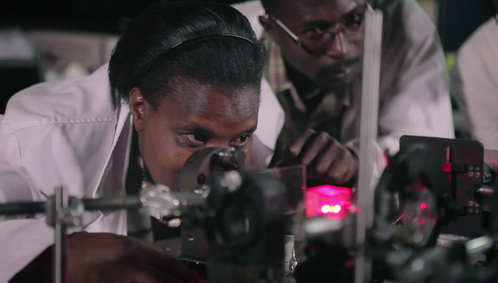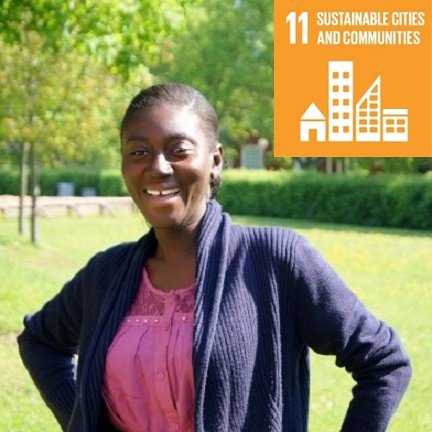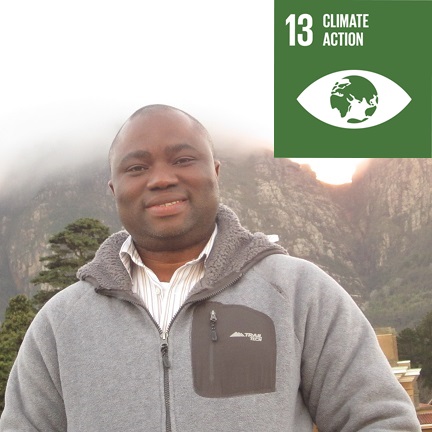Sustainability of ISP´s work
ISP provides long-term funding and mentoring to research groups and scientific networks at universities and research institutes in low and lower-middle income countries in Africa, Asia and Latin America. Is the ISP model sustainable?
What do you think about ISP?
"ISP has been doing a great job to ensure capacity building in many countries where the basic facilities are absent."
H E Professsor Ameenah Gurib Fakim
Former President of the Republic of Mauritius
Former ISP Reference Group Member
Current Member ISP Board

Why is math important?
“Name a country that has developed without putting emphasis on basic education?”
ISP graduate and mathematician Dr Jared Ongaro gives us the answers to why ISP supports mathematics and why it is important for country development.
.JPG)
Contribution to sustainable development
Contributing to development. Through the use of research results, knowledge and skills our supported research groups and networks are contributing to the achievement of several of the United Nation's Sustainable Development Goals (SDGs)


Zero hunger
Chemistry Bangladesh. A formererly supported research group at University of Dhaka has contributed to the “Bangladesh Food Act 2013”. The act is now a food safety law ensuring peoples right to access safe food. The group was also part in the creation of the “Formalin Control Act 2015”, a licensing system for the import and use of the solvent Formalin, used to preserve fresh food in Bangladesh.
Chemistry Burkina Faso. A chemistry network laboratory at University Joseph Ki-Zerbo (formerly known as University of Ouagadougou) has been chosen by the Government of Burkina Faso as a Center of Reference and Control for nutritional issues. The overall goal of the network is to improve the nutritional status of the Sub-Saharan African population, with special emphasis on vulnerable groups.
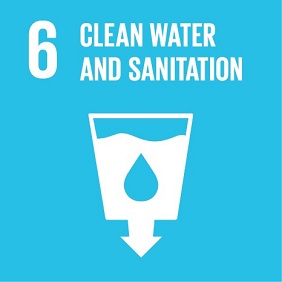
Clean Water and sanitation
Physics Bangladesh. A biomedical physics research group at University of Dhaka contributed to the development and distribution of new methods for solar water pasteurization and rainwater collection, providing safe drinking water to people in the urban slums.
Chemistry Burkina Faso. Members of a network coordinated from University Joseph Ki-Zerbo developed an electrocoagulation-based approach using iron, to efficiently treat wastewater of the city, in partnership with the Burkina Faso National Office for Water and Sanitation.
Physics Kenya. A research group at University of Nairobi has patented a prototype of a small-scale purification system. This system will provide pure water to poor rural communities relying on dirty and salty borehole water, and those leaving in dry lands next to seawater resources.

Good health and well-being
Physics Bangladesh. A research group in biomedical physics at University of Dhaka has developed and implemented instrumentation and software for a telemedicine-based rural healthcare system, using modern communication technology to provide remote access to clinical health care and medical services. A low-cost computerized pedograph for diabetic patients has also been developed, in 2011 listed by the World Health Organization as a new and emerging health technology.
Mathematics Uganda. The results of infectious-disease modelling of malaria, HIV, hepatitis E, and sleeping sickness carried out by a research group supported at Makerere University, have been utilized by the Ugandan Medical Research Council to advice on the best investment strategy to fight infectious diseases.
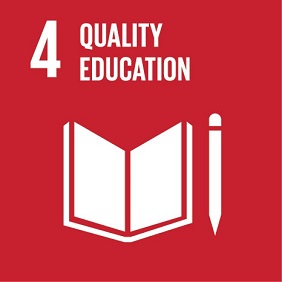
Quality education
ISP´s support to PhD education in supported groups and networks is contributing to increasing the quality of research at their departments. In addition, they continuously organise and participate in science workshops, training courses and science camps for both high school teachers and students aiming to increase the quality of teaching and education in the fields of chemistry, mathematics and physics.

Gender equality
ISP envisions that women and men in supported groups and networks should have equal opportunities to achieve their full potential in scientific research. ISP works to create an awareness of the gender biases and to increase women's participation in scientific research to the same level as men's.

Affordable and clean energy
Physics Kenya. A formerly supported research group at University of Nairobi regularly organises well attended solar academy trainings in solar power system design, installation and maintenance. Many of the group members are now considered to be experts in the PV systems industry in the country.
Physics Zambia. A research group at University of Zambia is engaged in the electrification of rural areas, using solar panels. The group was also contracted by the Rural Electrification Authority to review operations, and develop business models to sustain operations, of solar mini grid plants in rural Zambia.
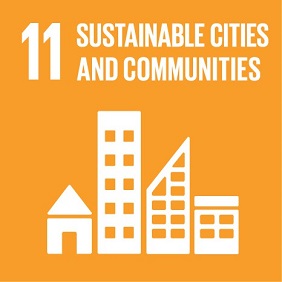
Sustainable cities and communities
Physics Ethiopia. A research group supported at Addis Ababa University has produced a seismic hazard map, which will be of use to the Ethiopian Ministry of Urban Development and Construction in the creation of the new country building code.
Mathematics Senegal. A network working in hydrological modelling is developing mathematical models of agricultural irrigation systems, controlling the flow and level of rain- and groundwater through a network of channels. The models will help farmers in West African countries, which are dependent on irrigation systems to grow crops during both rainy and dry seasons.

What is ISP to you?
"ISP is a unique program that promotes strengthening of basic sciences and higher education in developing countries. Its approach is realistic and down to earth."
Dr Mohamed Gharib Bilal
Former Vice-President of Tanzania
Former Member ISP Board

Why ISP?
"ISP is the only important organization I know of, besides the ICTP (International Centre for Theoretical Physics) that has an explicit mandate to promote physical sciences in low-income countries.
In addition, the ISP model is quite unique as it provides long term support to the building of research capacity and excellence in basic sciences in poor countries.
And thirdly, the model includes participation and collaboration with the Swedish academic community in building the capacity of research groups in developing countries."
Professor Mohamed Hassan
Former President of TWAS - The World Academy of Sciences

